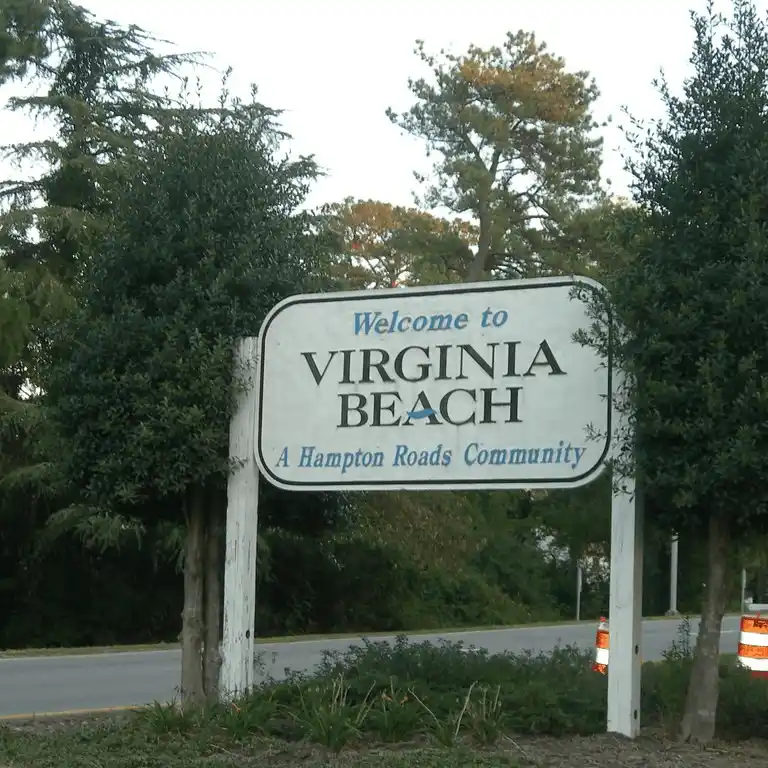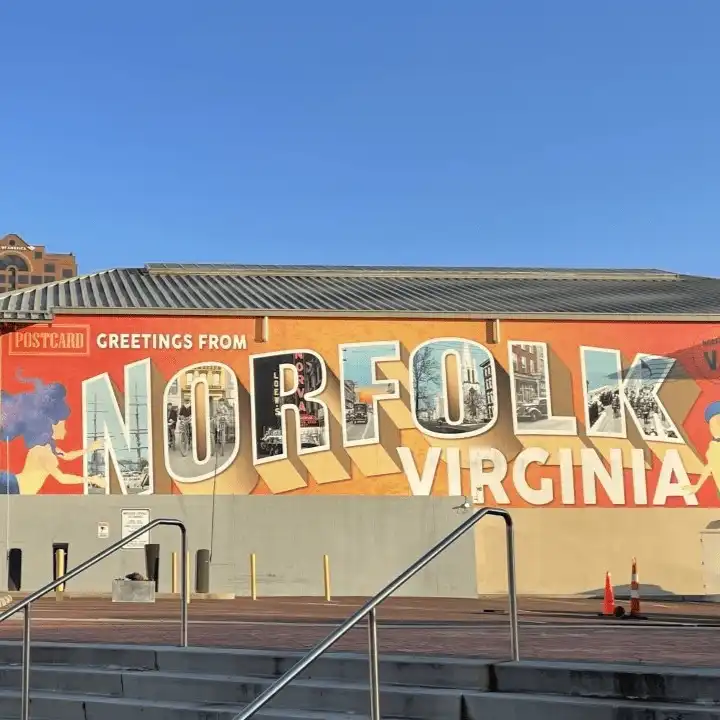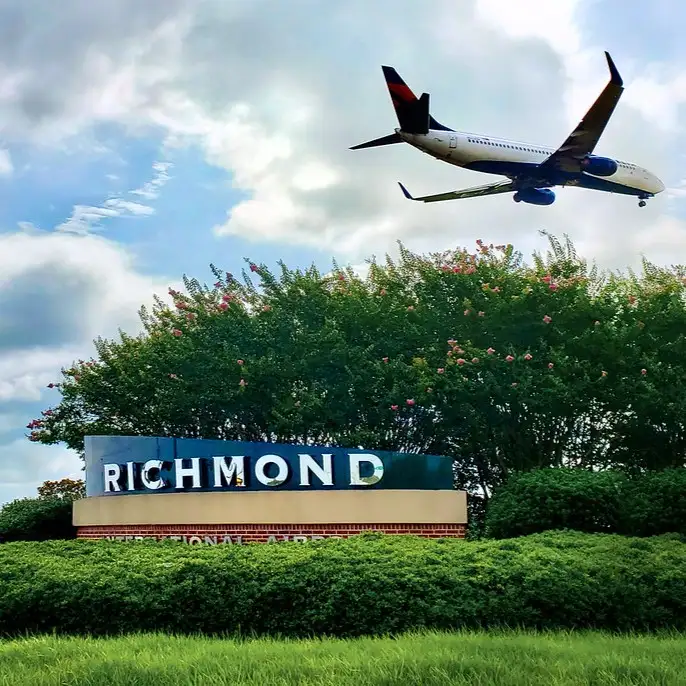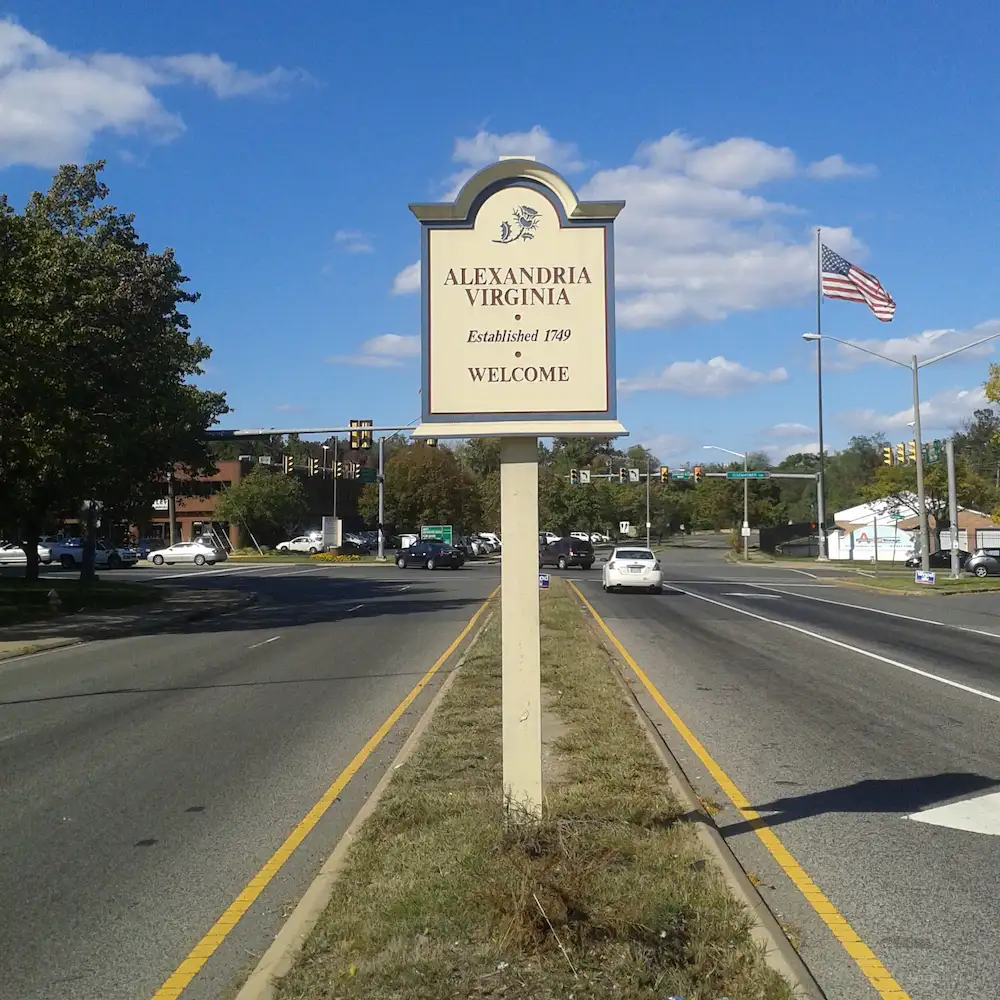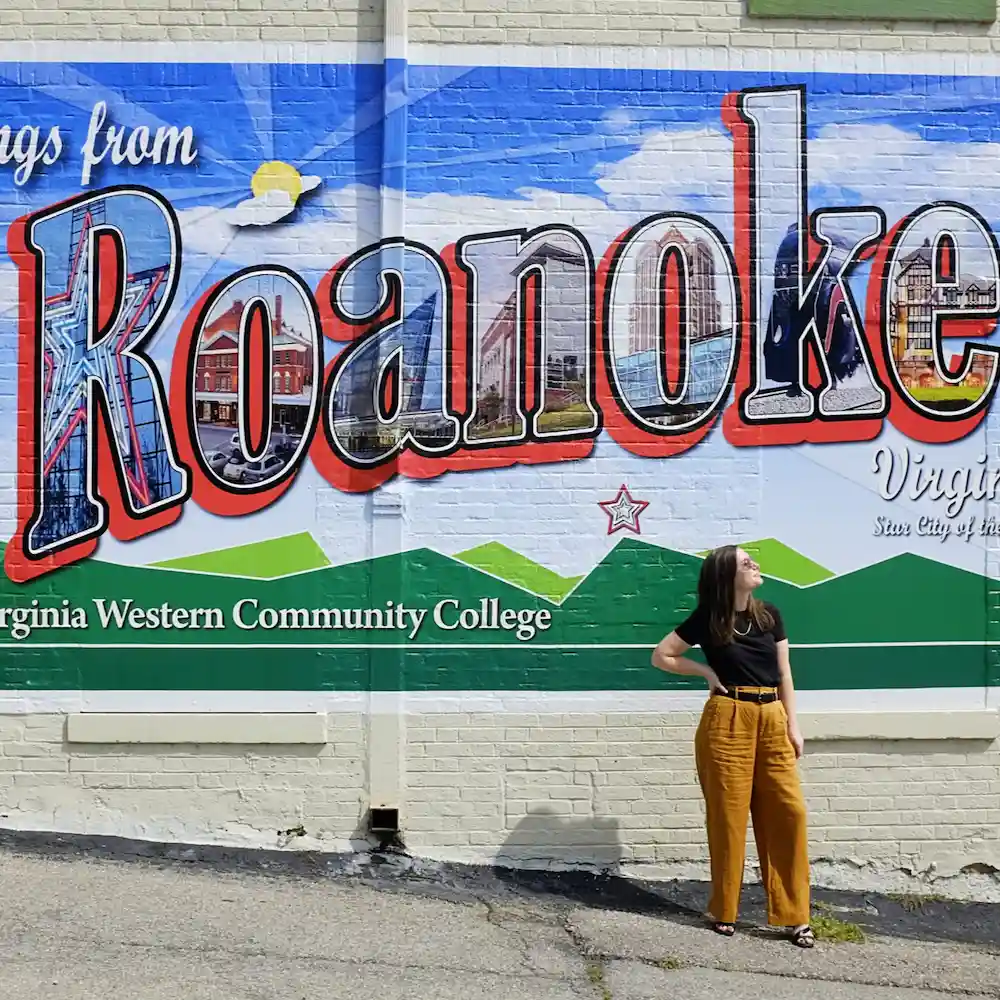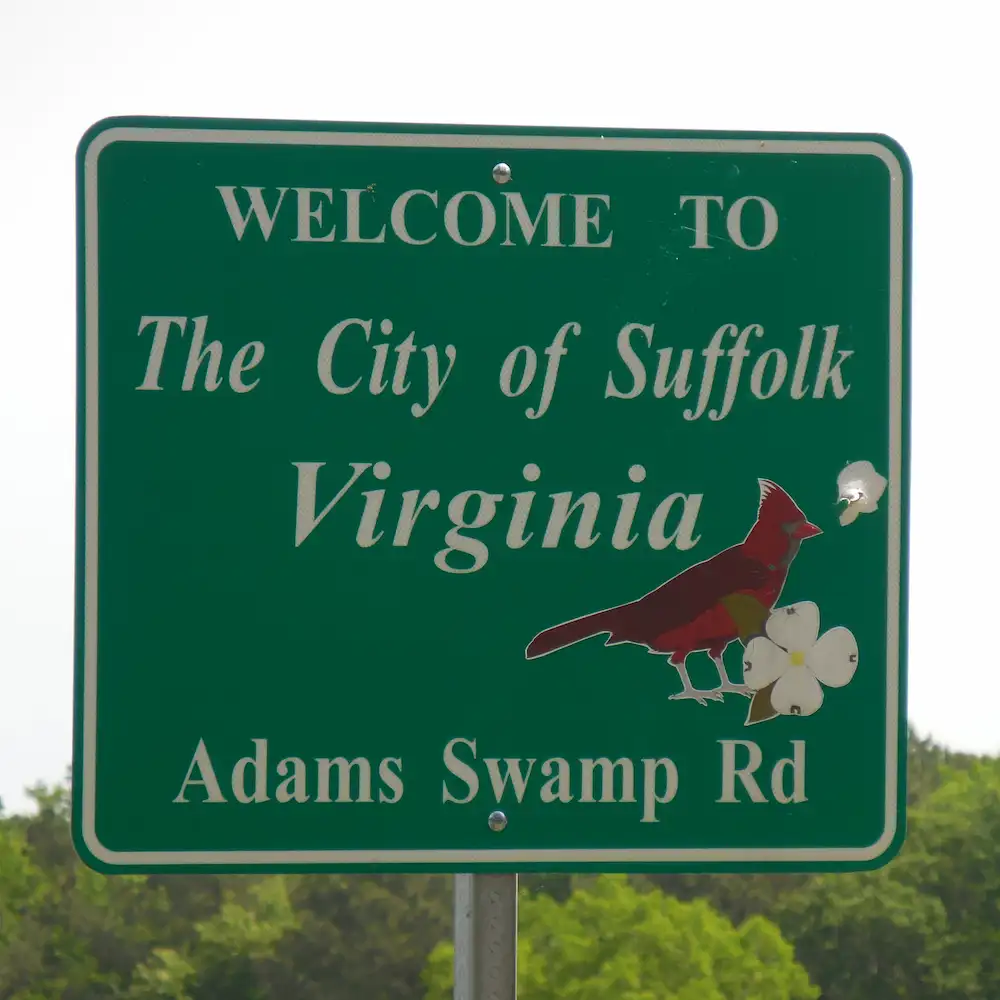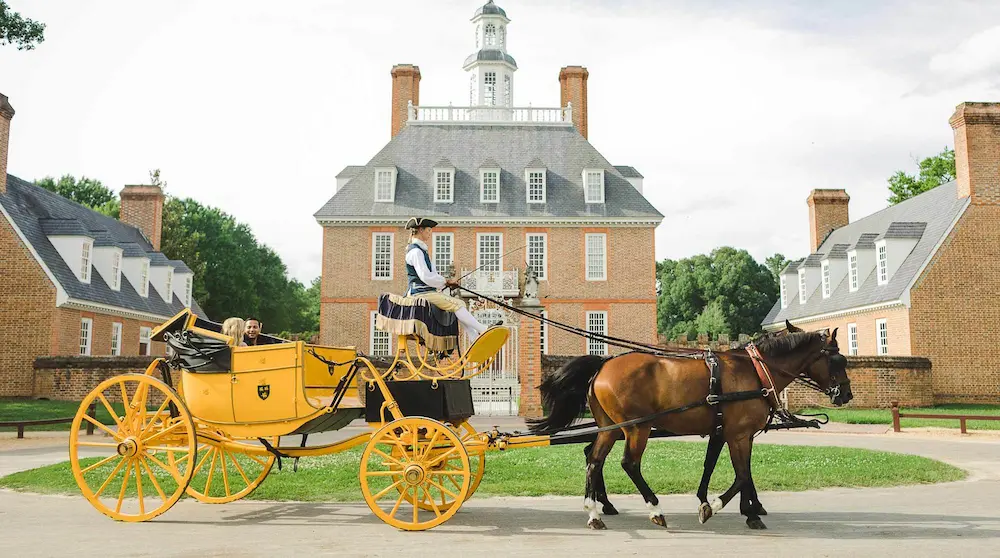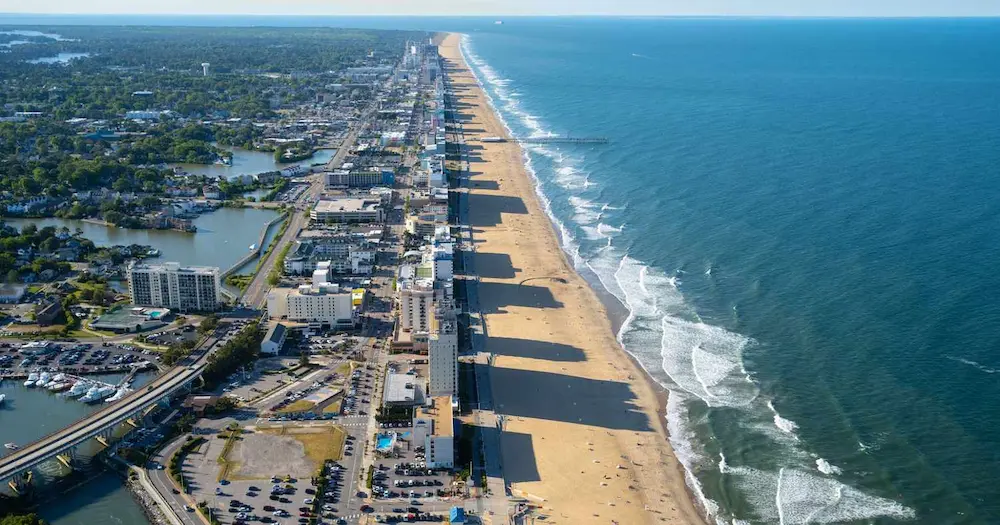Thank you for your feedback!
We will contact you shortly
Free consultation
Enter your phone number and we will call you back for a consultation on any moving and storage services
Virginia Moving Company
Relocating across the Old Dominion requires a professional team that excels in navigating diverse regions, from the busy metropolitan corridors of Northern Virginia and Arlington to the historic streets of Richmond and Virginia Beach. At Star Van Lines, we specialize in making every transition seamless, whether you are moving a family into a colonial estate in Alexandria, a modern residence in Chesapeake, or a quiet property in Roanoke. As a leading Virginia moving company, we provide the regional expertise and heavy-duty care required for a successful relocation in this gateway to the South.
Our crew excels as local movers in Virginia, expertly managing the logistics of the I-95, I-64, and I-81 corridors with precision. We are also the premier choice for Virginia long distance movers, facilitating efficient relocations to Maryland, North Carolina, or across the nation. We offer a comprehensive suite of solutions, including Virginia packing services and secure Virginia moving and storage options with climate-controlled facilities to protect your valuables from the Mid-Atlantic’s seasonal humidity. For business transitions, our commercial movers in Virginia ensure minimal downtime for your operations.
We believe in transparency, providing the most competitive Virginia moving quotes to help you plan your budget effectively. Whether you require expert interstate movers, specialized furniture movers, or a dedicated team for an out of state move, Star Van Lines is committed to excellence. From apartment movers in Virginia to full-service residential teams, trust our professional movers in Virginia to manage your move with the highest level of efficiency and care.

Virginia
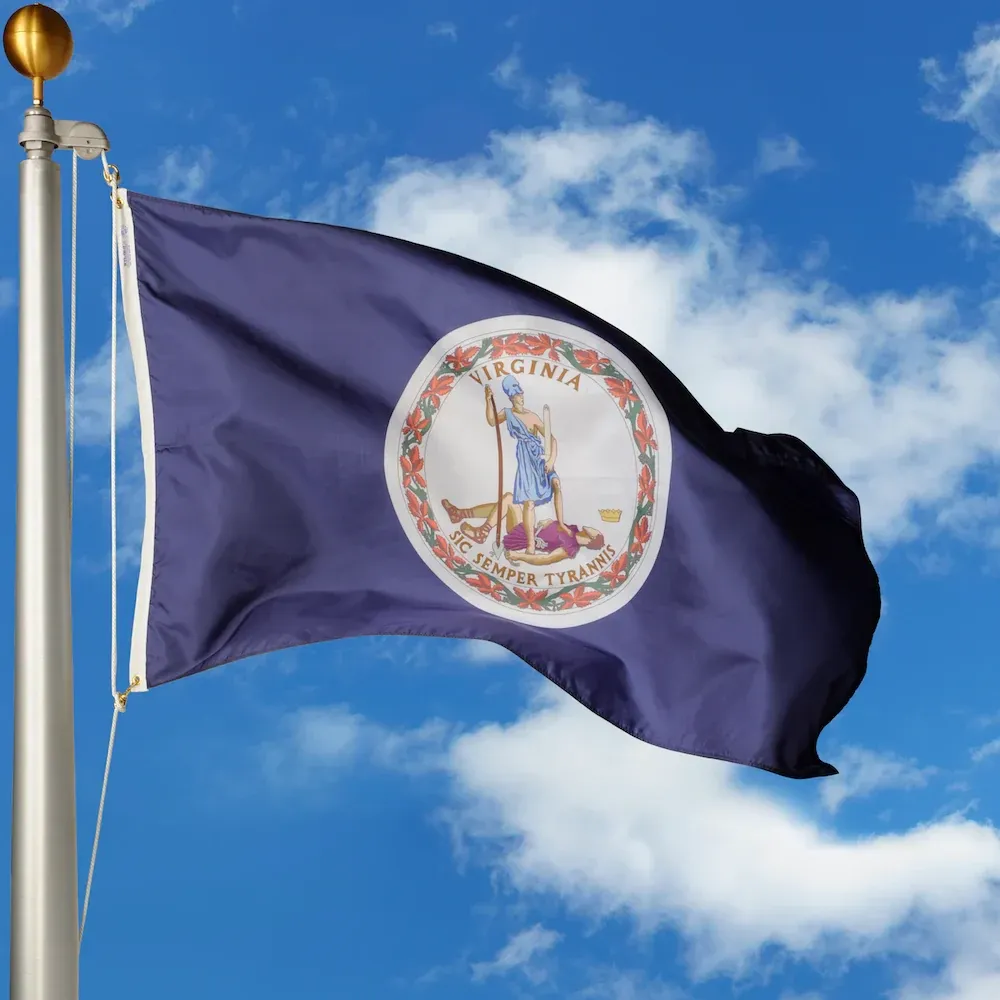
Movers in Virginia
Moving in Virginia can feel simple on paper—until you’re juggling timelines, fragile items, parking, elevators, and a dozen small details that decide whether your move is smooth or stressful. If you’re looking for dependable Virginia movers who can plan, protect, and deliver with care, Star Van Lines is ready to help with local and long-distance relocations across the Commonwealth.
Whether you’re moving from a high-rise in Northern Virginia, a townhouse near Richmond, or a family home in Hampton Roads, our team makes the process clear and manageable. Start with a free quote calculation and get a plan that matches your schedule, inventory, and priorities.
Full-Service Moving in Virginia
A successful move isn’t just about loading a truck—it’s about controlling risk and keeping the day on track. Star Van Lines offers full-service support designed to reduce damage, delays, and last-minute surprises.
Our Virginia moving services can include:
- Local and long-distance moving
- Residential moves (apartments, condos, houses, townhomes)
- Commercial and office relocations
- Professional packing and unpacking
- Furniture disassembly and reassembly
- Loading, transport, and unloading support
- Short-term and long-term storage options (availability varies)
If you’re comparing movers in Virginia, focus on two things: how well they plan and how well they protect what you own. Star Van Lines builds a moving approach around both—starting with an accurate inventory and a clear quote.
Moving Services We Offer
Local Moving in Virginia
Local moves still require real strategy—especially in busy areas like Arlington, Alexandria, Fairfax, or dense neighborhoods near downtown Richmond and the coast. With local moving in Virginia, the challenges often come from:
- Tight stairwells and elevators
- Parking and loading access
- Time windows for buildings and communities
- Fragile items that can’t be rushed
Star Van Lines helps you prepare, pack, and move with a process that supports a steady pace. We focus on safe handling, clean loading, and organized unloading so your new place doesn’t become a maze of random boxes.
Long-Distance & Interstate Moves
If you’re planning a long-distance move, you need a company that treats timing and protection as non-negotiables. Star Van Lines supports long-distance moves to and from Virginia with:
- Structured packing options
- Clear communication about pickup and delivery windows
- Careful load planning to reduce shifting and damage in transit
- Item-by-item organization so delivery is easier to manage
For long-distance moves, your quote depends heavily on distance, volume, services selected, and access conditions. That’s why a free moving quote is the best place to start—so you’re not guessing.
Packing & Unpacking Services
Packing is where most moving-day problems begin. Weak boxes, poor labeling, mixed rooms, and unprotected glass can turn into damage, confusion, and wasted time. Star Van Lines offers professional packing and unpacking that can include:
- Strong packing materials (boxes, wrap, cushioning)
- Room-by-room labeling and organization
- Protective wrapping for delicate and high-value items
- Kitchen, glassware, and electronics packing care
- Optional unpacking support to speed up settling in
If you want the move to feel easier, packing is the single best upgrade. It reduces breakage and keeps the day moving.
Residential Movers for Apartments, Condos, and Homes
Virginia offers every type of living setup—city apartments, suburban condos, military-area communities, historic homes, and multi-story townhouses. Star Van Lines supports residential moves with attention to the real details:
- Protecting floors and corners during carry-outs
- Handling bulky furniture safely
- Keeping boxes sorted by room and priority
- Planning for stairs, elevators, and long hallways
If you’re moving into a new home, you deserve to arrive without the stress of damaged items or missing pieces. Our crews focus on careful handling from the first box to the final placement.
Commercial & Office Relocations
A business move isn’t only physical—it affects productivity, customer service, and internal operations. Star Van Lines helps companies plan a commercial relocation to reduce downtime. Depending on your needs, services can include:
- Packing and labeling systems by department
- Coordination for IT equipment handling
- Furniture breakdown and setup support
- Scheduling options to reduce disruption
If your office is moving within Northern Virginia, toward Richmond, or across Hampton Roads, planning matters as much as the truck. We help you move in a way that supports continuity.
Moving and Storage Options
Sometimes your move requires storage—maybe your closing dates don’t align, renovations take longer than planned, or you’re staging your home. Star Van Lines can discuss moving and storage solutions that fit your timeline, including short-term or longer-term options depending on availability.
Storage can be a smart way to reduce pressure and protect items until you’re ready.
Areas We Serve Across Virginia
Star Van Lines supports moves throughout Virginia, including many major regions and surrounding communities such as:
- Northern Virginia (Arlington, Alexandria, Fairfax and nearby areas)
- Richmond and Central Virginia
- Virginia Beach and coastal communities
- Norfolk, Chesapeake, Newport News, Hampton and the broader Hampton Roads region
Not sure if your location is covered? Request a free quote calculation and tell us your start and destination points—local or long-distance.
Why Choose Star Van Lines as Your Virginia Moving Company
When you’re hiring a moving company in Virginia, you’re trusting strangers with the items that make your home feel like home. Star Van Lines approaches that trust with preparation and care.
Here’s what customers value most when moving with us:
- Clear planning: We align the move with your inventory, access details, and schedule.
- Careful handling: We focus on protection, smart loading, and safe carrying.
- Packing expertise: Professional packing reduces breakage and speeds up the day.
- Organized process: Room-by-room labeling and structured unloading saves time.
- Flexible service levels: From labor help to full-service moves with packing.
- Reliable communication: You know what’s happening and what to expect next.
- Solutions for complex moves: Stairs, long carries, bulky furniture, tight access.
- Quote clarity: Start with a free quote calculation so there are no surprises.
Your move should feel controlled—not chaotic. That’s the standard Star Van Lines brings to Virginia relocations.
Our Moving Process: What to Expect
1) Start with a Free Quote Calculation
Every move begins with a free quote calculation. Share basic details like move size, locations, preferred dates, and any special items. The more accurate your inventory, the more accurate your quote.
2) Build a Move Plan
We help map out the logistics: access points, stairs or elevators, timing needs, packing requirements, and any bulky or fragile items that need extra care.
3) Packing and Preparation
If you choose packing support, we handle the materials and packing process in a structured way. If you pack yourself, we can provide guidelines that help prevent breakage and lost time.
4) Loading and Transport
On moving day, our goal is safe, organized loading. This reduces shifting during transit and makes unloading easier.
5) Unloading and Final Placement
We unload by room and priority to reduce confusion. A clean finish includes a final walkthrough to confirm all items are delivered and placed where you want them.
Cost of Movers in Virginia: What Affects Your Quote?
If you’re researching the cost of Virginia movers, you’ll see one consistent truth: pricing depends on the details. A fair quote reflects real workload and logistics, not a vague estimate.
Common factors that affect your moving estimate include:
- Move size and inventory volume (number of rooms, total furniture, box count)
- Distance (local vs. long-distance)
- Access conditions (stairs, elevators, long carries, parking availability)
- Packing services (full packing, partial packing, fragile-only packing)
- Disassembly and reassembly (beds, large tables, modular furniture)
- Special items (pianos, large safes, oversized equipment)
- Timing and seasonality (peak periods can affect availability)
The easiest way to understand your cost is a free moving quote tailored to your move. Star Van Lines offers a free quote calculation so you can make decisions with real numbers, not guesswork.
Tips for a Smooth Move in Virginia
A great moving crew helps—but your prep matters too. Here are practical steps that make moving day faster and less stressful:
- Declutter before packing. Fewer items means less time and less cost.
- Separate essentials. Pack a first-night box with chargers, toiletries, basic kitchen items, and documents.
- Label by room + priority. “Kitchen—Daily Use” beats “Kitchen Stuff.”
- Keep valuables with you. Passports, jewelry, cash, and vital documents should travel in your personal bag.
- Take photos of electronics setups. Quick snapshots make re-setup painless.
- Prepare parking/loading space. If you can reserve space or plan access, do it early.
- Protect fragile items correctly. Use padding and avoid “empty space” in boxes.
- Measure large furniture. Doorways and stair turns can surprise you.
- Confirm building rules. Some apartments require elevator reservations or specific move hours.
- Plan for weather. Virginia weather can shift quickly—have coverings and entryway protection ready.
If you want guidance specific to your location—Northern Virginia, Richmond, or Hampton Roads—Star Van Lines can include those details when you request your free quote calculation.
Get a Free Quote Calculation From Star Van Lines
If you’re searching for Virginia movers who combine planning, careful handling, and flexible service options, Star Van Lines is ready to help. Whether you’re relocating within Arlington, Alexandria, Fairfax, moving near Richmond, or heading toward Virginia Beach and the broader Hampton Roads area, we’ll build a moving plan that fits your needs.
Request your free quote calculation now with Star Van Lines—and take the first step toward a smoother move.
Local moving rates in Virginia
| Home size | No. of movers | # hours | Ave cost / Hr | Average price |
|---|---|---|---|---|
| Studio | 2 movers | 3 - 4 hours | $89 / hr | $297 - $356 |
| 1 Bedroom | 2 movers | 3 - 6 hours | $99 / hr | $297 - $594 |
| 2 Bedroom | 3 movers | 4 - 7 hours | $129 / hr | $516 - $903 |
| 3 Bedroom | 4 movers | 6 - 11 hours | $159 / hr | $954 - $1749 |
| 4 Bedroom | 5 movers | 7 - 14 hours | $189 / hr | $1323 - $2646 |
| No. of movers |
|---|
| 2 movers |
| 2 movers |
| 3 movers |
| 4 movers |
| 5 movers |
| # hours |
|---|
| 3 - 4 hours |
| 3 - 6 hours |
| 4 - 7 hours |
| 6 - 11 hours |
| 7 - 14 hours |
| Ave cost / Hr |
|---|
| $89 / hr |
| $99 / hr |
| $129 / hr |
| $159 / hr |
| $189 / hr |
| Average price |
|---|
| $297 - $356 |
| $297 - $594 |
| $516 - $903 |
| $954 - $1749 |
| $1323 - $2646 |
Long distance moving rates in Virginia
| Distance | 1 Bedroom | 2 - 3 Bedroom | 4 - 5 Bedroom |
|---|---|---|---|
| Local (Less than 100 Miles) | $500 - $800 | $750 - $1200 | $1125 - $1800 |
| 100 miles | $1000 - $1600 | $1500 - $2400 | $2250 - $3600 |
| 250 miles | $1100 - $1760 | $1650 - $2640 | $2475 - $3960 |
| 750 miles | $1210 - $1936 | $1815 - $2904 | $2722 - $4356 |
| 1500 miles | $1331 - $2133 | $1997 - $3194 | $2994 - $4792 |
| 2500 miles+ | $1464 - $2346 | $2197 - $3513 | $3293 - $5271 |
| 1 Bedroom |
|---|
| $500 - $800 |
| $1000 - $1600 |
| $1100 - $1760 |
| $1210 - $1936 |
| $1331 - $2133 |
| $1464 - $2346 |
| 2 - 3 Bedroom |
|---|
| $750 - $1200 |
| $1500 - $2400 |
| $1650 - $2640 |
| $1815 - $2904 |
| $1997 - $3194 |
| $2197 - $3513 |
| 4 - 5 Bedroom |
|---|
| $1125 - $1800 |
| $2250 - $3600 |
| $2475 - $3960 |
| $2722 - $4356 |
| $2994 - $4792 |
| $3293 - $5271 |
Moving routes from Virginia
What to know before moving to Virginia
Benefits of moving to Virginia
0-5%
Income tax rate
0
Major cities
+0
Millions of residents
$0K
Median household income
0
Year of foundation
$0K
Cost of average house
$0.4
Average gas price
+0
State parks
Why are people moving to Virginia
Low crime Rate
Friendly people
Good job market
Thriving economy
Excellent schools
Top medical facilities
Beautiful scenery


COST OF LIVING IN Virginia
Is Virginia a good place to live?
In Virginia, the income tax is progressive, ranging from 2% to 5.75% based on income. The state sales tax is 4.3%, and local sales taxes may apply. Property tax rates in Virginia can vary by county and city.
In Virginia, the income tax is progressive, ranging from 2% to 5.75% based on income. The state sales tax is 4.3%, and l...Read more
The cost of living in Virginia varies depending on the region but is generally considered slightly higher compared to the national average. Housing costs, including renting or buying a home, may be higher in urban areas such as Arlington or Alexandria, but more affordable options can be found in suburban or rural areas. Utilities such as electricity and water are reasonably priced. Additionally, groceries and everyday goods are typically affordable. Healthcare costs in Virginia are in line with the national average.The cost of living in Virginia varies depending on the region but is generally considered slightly higher compared to the national average. Housing costs, including renting or buying a home, may be higher in urban areas such as Arlington or Alexandria, but more affordable options can be found in suburban or rural areas. Utilities such as electricity and water are reasonably priced. Additionally, groceries and everyday goods are typically affordable. Healthcare costs in Virginia are in line with the national average.
The cost of living in Virginia varies depending on the region but is generally considered slightly higher compared to the national average. Housing costs, including renting or buying a home, may be higher in urban areas such as Arlington or Alexandria, but more affordable options can be found in suburban or rural areas. Utilities such as electricity and water are reasonably priced. Additionally, groceries and everyday goods are typically affordable. Healthcare costs in Virginia are in line with the national average.
The cost of living in Virginia varies depending on the region but is generally considered slightly higher compared to th...Read more
The housing market in Virginia offers a diverse range of options, from historic homes in charming neighborhoods to modern apartments and suburban developments. Prices can vary depending on the location and property type. Urban areas such as Northern Virginia and the Hampton Roads region may have higher housing costs compared to smaller towns or rural areas. Virginia's housing market is influenced by factors such as demand, local economy, and proximity to job centers.
The housing market in Virginia offers a diverse range of options, from historic homes in charming neighborhoods to moder...Read more
TOP SPOTS IN Virginia
Who would be suited to move to Virginia?
Rich History and Heritage
Immerse yourself in Virginia's captivating history, from the colonial era to the Civil War, with numerous historic sites, museums, and reenactments that bring the past to life.
Natural Beauty
Explore Virginia's scenic landscapes, including the Blue Ridge Mountains, Chesapeake Bay, and picturesque coastal areas, offering outdoor recreational opportunities and stunning vistas.
Culinary Delights
Indulge in Virginia's diverse culinary scene, from world-class restaurants to farm-to-table experiences, and savor the flavors of fresh seafood, Southern cuisine, and local delicacies.
Vibrant Arts and Culture
Immerse yourself in Virginia's thriving arts scene, with theaters, galleries, music festivals, and cultural events that showcase local talent and international performances.
Educational Excellence
Virginia is home to prestigious universities and colleges, offering a wide range of academic programs and research opportunities, making it an ideal destination for lifelong learning.
Proximity to Washington D.C.
Benefit from Virginia's close proximity to the nation's capital, with easy access to cultural, political, and career opportunities while enjoying a slightly more relaxed pace of life.
SCHOOLS
Top Virginia schools
UNIVERSITIES
Top Virginia universities
WHERE TO WORK
Largest employers in Virginia
Dollar Tree
Hilton
Airbus
DXC
Mars
CMA CGM
General Dynamics
Spectrum
Northrop
Safran
CC USA
AAP
CSC
Brink’s

Where to go on vacation
The best attractions in Virginia
Are you interested in outdoor activities, but your spouse is more excited about history and culture? There’s something for both of you in Virginia!
Our Services
Moving services in Virginia

Long distance moving
- Careful transportation over any distances
- Insurance of your choice
- We will arrive right on time
- Free storage for 1 month!

Local moving
- departure of the movers within 1 hour
- anywhere in the city by the shortest route
- 24/7. just in time
- Unlimited packing materials (blankets, wardrobes, shrink wrap, tape)

Commercial relocation
- Accurate transport of your cargo
- Insurance of your choice
- We'll be there right on time
- Storage for 1 month as a gift!

Special moving
- Careful transportation of valuables
- Transportation of any oversized cargo
- Insurance of your choice during the move
- Specialized packaging and special fasteners

Storage
- Storing household goods from 1 month to infinity
- 100% guarantee of cargo safety during storage
- We'll be there right on time
- Storage for 1 month as a gift!

Packaging
- Packing your items properly
- Have 15 types of packing materials
- 100% guarantee of cargo safety during movement
Free consultation
Enter your phone number and we will call you back for a consultation on any moving and storage services
Know your moving price in 2 minutes
Moving calculator is easy to use and helpful in moving process! Get your exact price and be prepared, no hidden fees!
We value our reputation
Reviews on major platforms
NPS rating of our clients
Hi, I'm Bill, and I cannot express enough how delighted I am with the exceptional service provided b...
<span> December 4, <span> 2022
Opened
Hey, there. I just wanted to make this quick video to give huge shoutout to Star Van Lines moving co...
<span> December 11, <span> 2022
Everything was perfectly smooth. Everybody was super nice, professional, quick. And how do you like ...
<span> November 18, <span> 2022
Star Van Lines are totally outstanding. They worked very hard, were polite and kind, wrapped and tab...
<span> December 20, <span> 2022
So my friend had used Star Van Lines several times, very successfully with their business, moving bi...
<span> May 24, <span> 2023
Great moving. I was very happy with these movers especially the excellent customer service Vasili pr...
<span> December 26, <span> 2022
FAQ
Questions? Look here
Can’t find an answer? Call us
(855) 822-2722 or email
Star Van Lines offers a full spectrum of moving services in Virginia, including local moves, long-distance relocations, commercial moving, packing and unpacking, piano and pool table moving, gun safe relocation, and storage solutions. Whether you're in Richmond, Virginia Beach, or Roanoke, our licensed and insured Virginia movers have you covered.
Yes. Our interstate moving experts specialize in relocations from Virginia to states like Florida, Texas, New York, or California. As a trusted Virginia long-distance moving company, we handle everything from planning and logistics to secure transport, furniture disassembly, and timely delivery.
Absolutely. We offer secure storage facilities in Virginia with climate-controlled units, 24/7 security, and flexible terms. Our movers with storage can pick up, store, and redeliver your belongings—ideal for renovations, temporary relocations, or downsizing.
Yes. Our team is equipped for heavy safe moving, piano relocation, pool table moves, and large furniture disassembly. Our Virginia specialty movers use advanced tools like dollies, liftgates, and protective blankets to ensure items are transported damage-free.
Our local Virginia movers provide prompt service, detailed inventory tracking, and courteous support. Whether you’re moving a townhouse in Arlington, an apartment in Norfolk, or a suburban home in Fairfax, we ensure your move is efficient and cost-effective.
Yes. We offer full-service packing using high-quality materials to protect your valuables. Our team is trained in packing fragile items, labeling, and room-specific organization. Post-move, we also help with unpacking and setup, so you can settle in quickly.
We handle commercial relocations in Virginia with after-hours scheduling, cubicle breakdown, IT equipment handling, and secure document transfer. From medical offices in Charlottesville to tech startups in Alexandria, we tailor our solutions to minimize business disruption.
Yes. If you already have a moving truck or portable container, our labor-only movers in Virginia can assist with loading, unloading, furniture rearrangement, or moving within the same building. This is ideal for DIY moves or situations requiring extra muscle.
Fill out the form
and get an
accurate cost calculation
within 30 minutes
Send us an email
Email us with questions or suggestions and we'll answer them!

